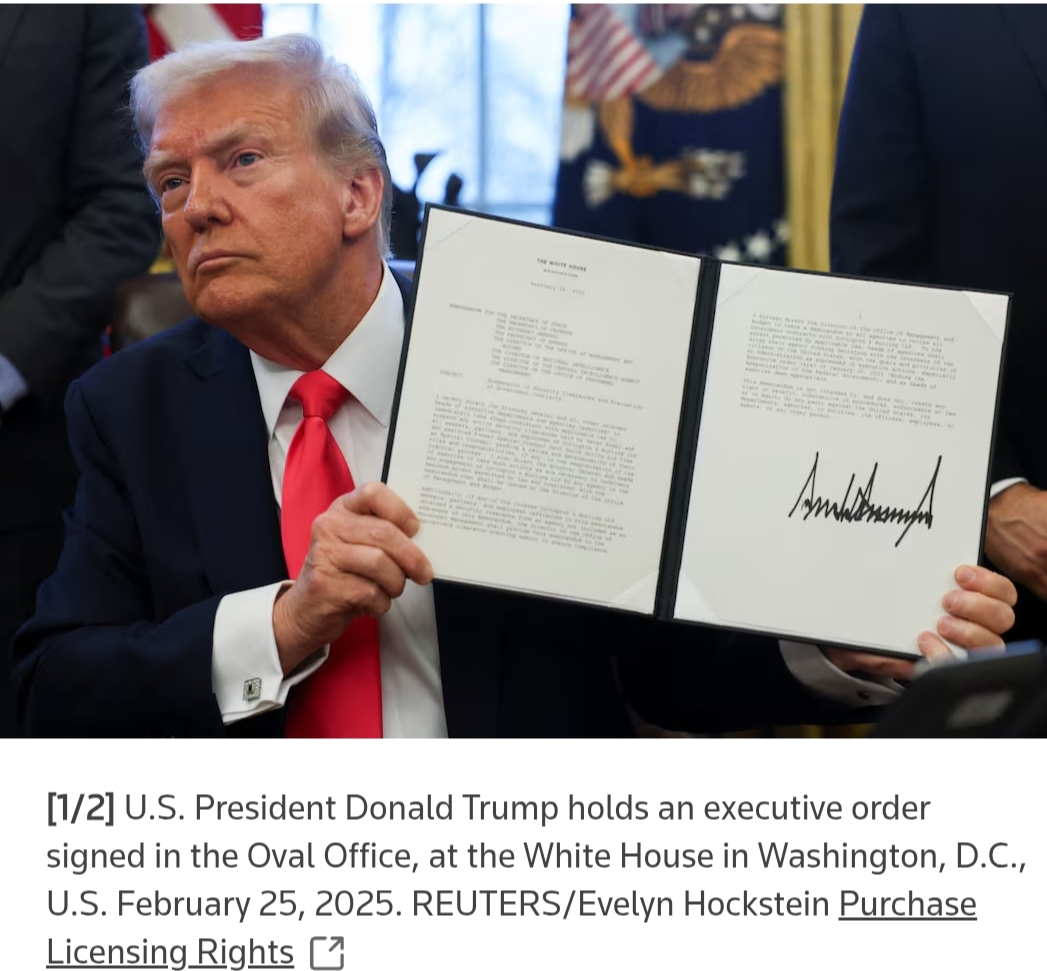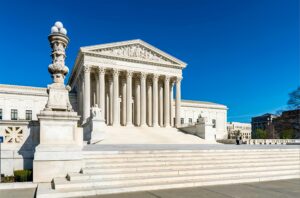President Donald Trump after assuming office for his second term, signed a flurry of executive orders. Some of these orders primarily target law firms and lawyers who rendered their services for the following –
Former FBI Director Robert Mueller’s 2017 probe against the alleged Russian interference in US elections, the investigation regarding subversion of US 2020 elections and the alleged mishandling of classified files after President Trump’s first term which led to a federal indictment.
As recently as last week, one of the many executive orders signed by President Trump’s targeting these firms and lawyers, was struck down by a US District judge. In a ruling on May 23, the executive order against the firm Jenner & Block was overturned by US District Judge John Bates.
In a 52 page order, Judge Bates observed –
“This case arises from one of a series of executive orders targeting law firms that, in one way or another, did not bow to the current presidential administration’s political orthodoxy. Like the others in the series, this order—which takes aim at the global law firm Jenner & Block—Makes no bones about why it chose its target: it picked Jenner because of the causes Jenner champions, the clients Jenner represents, and a lawyer Jenner once employed. Going after law firms in this way is doubly violative of the Constitution.”
The Trump administration signed similar executive orders against other large law firms, including Covington & Burling; Paul, Weiss, Rifkind, Wharton & Garrison LLP (Paul Weiss); Perkins Coie; WilmerHale; and Susman Godfrey.
All the executive orders tend to follow the same recipe: other than personalized touches in their first sections, they generally direct the same adverse actions towards each firm and decry the threat each firm poses to national security and the national interest, US District Judge Bates observed in his ruling noting that executive orders “like this one have become something of a modus operandi for the President.”
Jenner opted to sue but not everyone did, Paul Weiss, for instance, negotiated and ended in “a remarkable change of course” the Judge noted, from both Paul Weiss and the administration. According to the President, Paul Weiss “acknowledged the wrongdoing of its former partner” who, like former Federal Prosecutor Andrew Weissmann (part of Robert Muellers’ team) had drawn the President’s anger, and agreed to “adopt a policy of political neutrality with respect to client selection and attorney hiring; take on a wide range of pro bono matters representing the full political spectrum; commit to merit-based hiring, promotion, and retention, instead of ‘diversity, equity, and inclusion’ policies”; and “dedicate the equivalent of $40 million in pro bono legal services, to support the Administration’s initiatives,” Trump posted on his social media.
In exchange, the administration revoked the executive order aimed at Paul Weiss and other firms skipped straight to negotiations. Without ever receiving an executive order, these firms pre-emptively bargained with the administration and struck deals sparing them.
As per a Reuters’ report, nine law firms, including Paul Weiss, Milbank, Simpson Thacher and Skadden Arps, have pledged nearly $1 billion in free legal services to causes the White House supports and made other concessions to avoid being targeted by the President.
Other law firms like WilmerHale and Susman Godfrey have also used the Trump administration seeking to overturn the executive orders targeting them. Earlier this month, a federal judge struck down President Trump’s executive order targeting law firm Perkins Coie as a violation of the US Constitution’s protections of free speech and due process, and reprimanded him for “settling personal vendettas.”
US District Judge Beryl Howell in his 102 page opinion stated that President Trump’s executive order was an attack on foundational principles of American jurisprudence and the role lawyers play in ensuring the fair and impartial administration of justice.
In his ruling, Judge Howell observed –
“Settling personal vendettas by targeting a disliked business or individual for punitive government action is not a legitimate use of the powers of the U.S. government or an American President”
While the Trump administration continues to fiercely defend its actions, they seem to be losing the battle before the courts. Apart from these executive orders targeting law firms specifically, there are other much more significant orders that have either been blocked temporarily or partially by the US courts. For example, the executive order ending birthright citizenship, which was temporarily blocked, just like the order dismantling the Department of Education.
Author: Nitish Kashyap




